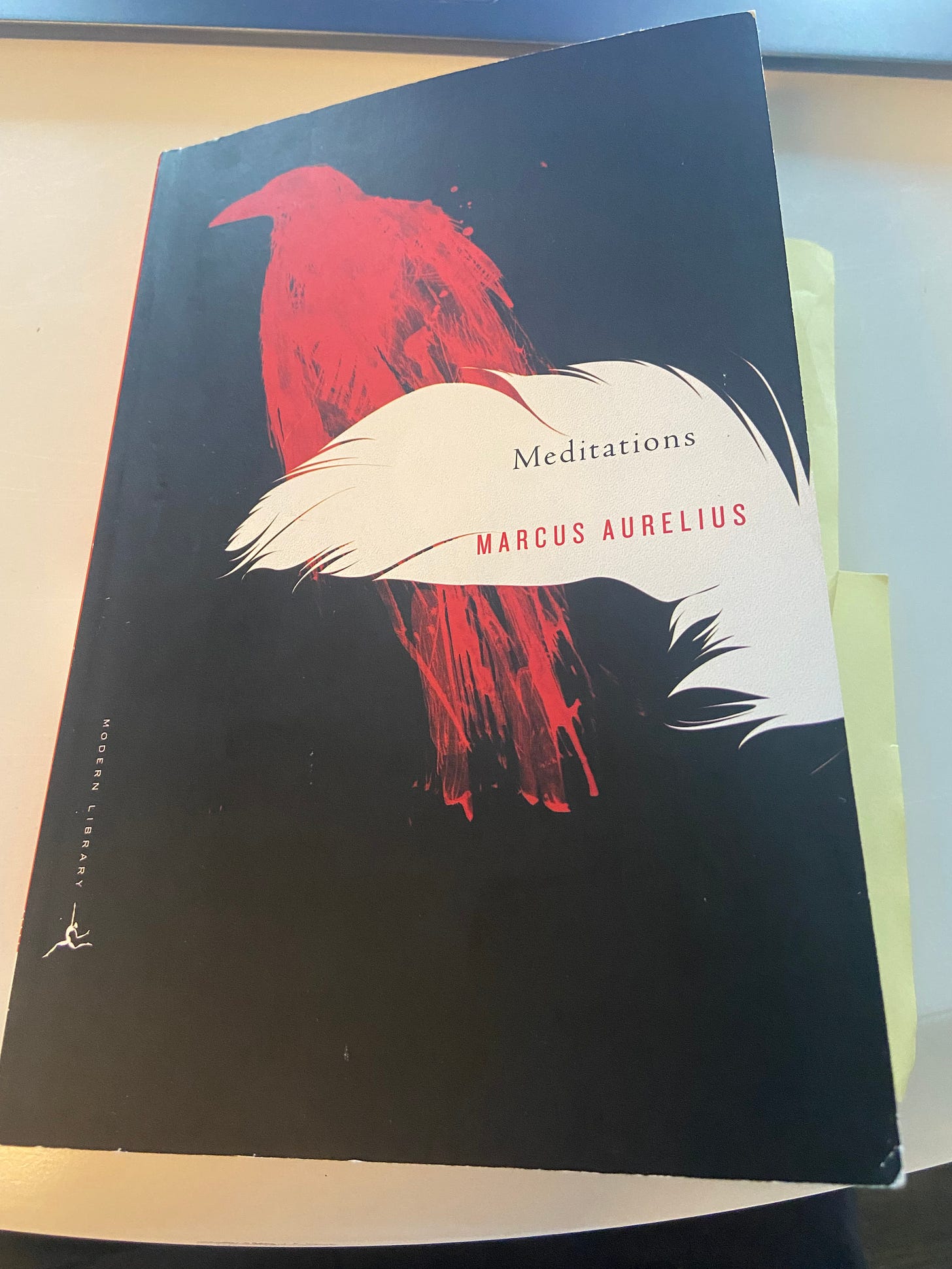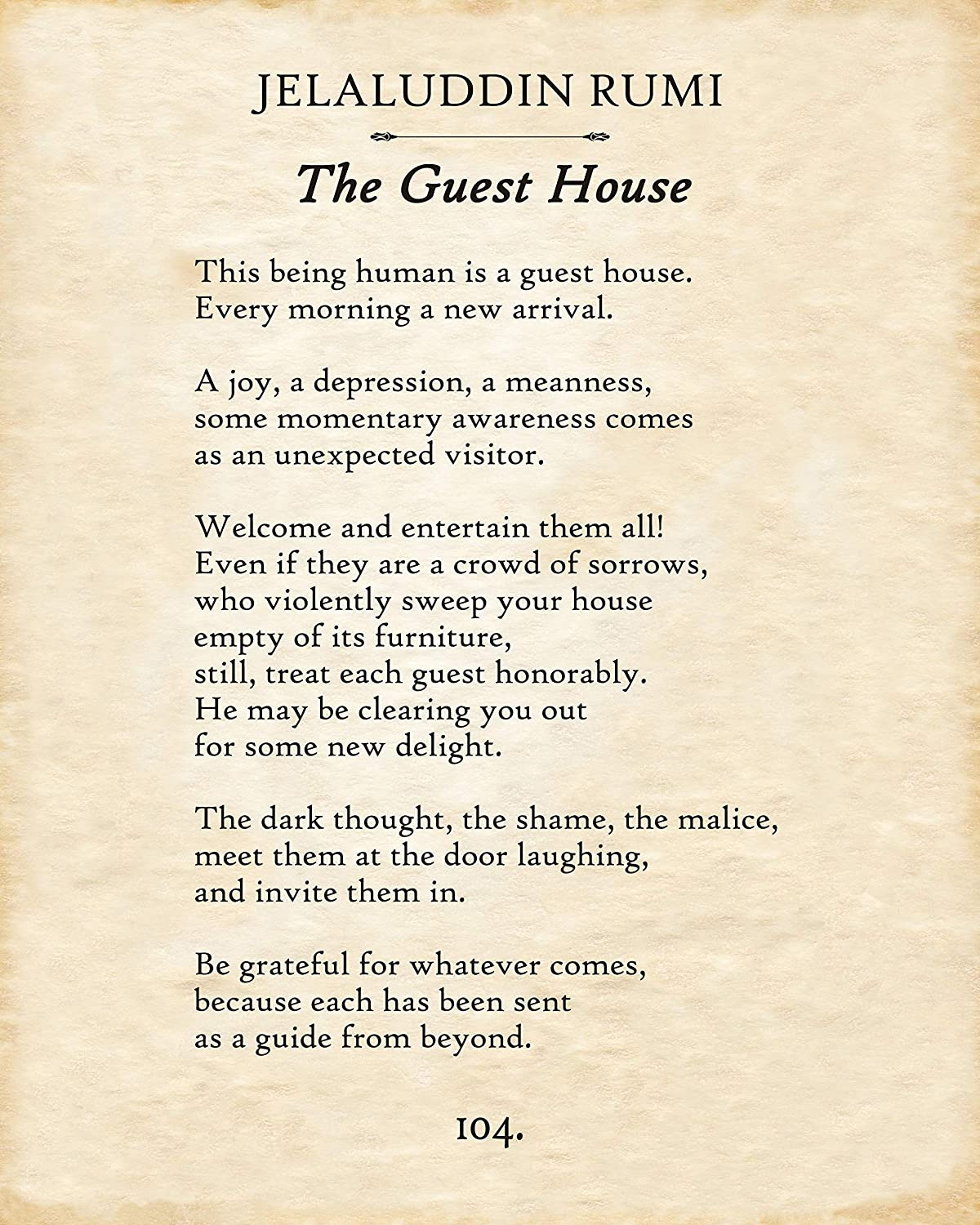Amor Fati is a Latin phrase translated to "love of one's fate,” which describes an attitude in which we see everything that happens, including good times, suffering and loss, as good or, at the very least, necessary.
It’s the conscious act of acceptance, accepting life as it unfolds. It’s the understanding that anger, sadness, anxiety and frustration are all natural parts of human life.
As difficult as it may be in the moment, we can see beauty in every little thing. This concept is addressed in Meditations, by Marcus Aurelius, who said we ought to find the good in our situation — no matter what — and keep looking until we find it. If we haven’t yet found it, keep looking. It’s there.
“It’s unfortunate that this has happened -- No. It’s fortunate that this has happened and I’ve remained unharmed by it.” — Marcus Aurelius
As the Daily Stoic says: Amori Fati is making the best out of everything that happen and treating each and every moment — no matter how challenging — as something to be embraced, not avoided. To not only be okay with it, but love it and be better for it.
Here’s an example from Chris Snow, a father of two who is battling ALS (via The Athletic). “I want to set an example for my kids (Willa and Cohen) that, regardless of how this ends, you have a choice as to how to respond to something. We want to show our kids, ‘Be positive, be courageous.'”
“Either you lean into this all the way or you don’t. And we’re in it. We’re leaning in. So if you’re leaning in, why not lean in hard?”
Two years ago, Chris Snow was told he’d have maybe a year to live. But his use of a promising experimental ALS treatment has already more than doubled his life expectancy. He just turned 40 this week and celebrated by throwing out the first pitch at Fenway Park. Then he grabbed his son and hugged him. His spirit isn’t about hiding his weakness but rather about choosing what thoughts and action to cultivate.
“It's a real show of what people are capable of going through,” his wife, Kelsie, said, “continuing to find joy, continuing to find happiness and see beauty in life.”
“I think when you lose so many people, you realize the cliches are true. That you need to live every day to the fullest because none of us are guaranteed anything. You can be angry — and there are times that I feel angry — or you can say, ‘Today’s a day to play with my kids and try to make a difference at work and show people that you have a choice to be happy or not.'”
“It makes you appreciate the days that you do have, whether they’re ordinary or crappy or whatever. This phase of our life is about appreciating every single day that we have.”
Here’s another example, from author Ryan Holiday, on using Amor Fati: “When it counts is when you find out your infant son might have an illness that will debilitate him and ultimately kill him before he sees his twentieth birthday. Like I did.
“It is then when you have to be reminded that you have a choice in how to perceive this event, and look in the mirror through tears and consider something: Maybe, just maybe, if he wasn’t sick I would have taken him for granted. Now I won’t. Now I’ll make every second count. I can choose to be grateful for twenty years fully-lived with my son versus sixty years mostly wasted.”
And here’s Coldplay’s Chris Martin: About 10 years ago, he was feeling ”depressed and overwhelmed.” He was in the final stages of his 10-year marriage to Gwyneth Paltrow, and he felt increasingly insecure about the music he was making. “I wasn’t looking at things in a healthy way,” he says, via Rolling Stone:
Then a friend gave him some books, including Man’s Search for Meaning, a memoir by psychiatrist and Holocaust survivor Viktor Frankl (we’ll discuss that superb book another time), and a volume by the 13th-century Persian poet Rumi. Martin says one poem, “The Guest House” — which suggests “inviting in” dark thoughts — helped him get through the period around his divorce. “It kind of changed my life,” he says. “It says that everything that happens to you is OK. The idea is to accept what happens to you and not run away from anything — and trust that things will blossom and become colorful.”
Coldplay then dropped his seventh album, A Head Full of Dreams, about his road back from anxiety and heartbreak. “It’s all true,” Martin says. “It’s about love and acceptance and embracing what happens to you.”
We can make a conscious decision to turn every event into something from which we can grow. Some of these examples, maybe all of them, are extreme: ALS, illness, cancer, job layoff, divorce. But the principles apply to everyday life. When we don’t land a job we want, don’t get the nice house we want, don’t make much money on our stocks, and so on. When our flight is delayed, when we’re stuck in traffic, when the AC or fridge breaks down. We can use every opportunity to grow.
One excellent exercise to put these ideas to the test today: Jot down current situations that have not yet turned out the way you want. Practice seeing each situation for its beauty, not its drawbacks. Consider how you can learn from them and how you can make the most out of them. It’s not about being optimistic or ignoring the reality of a challenging time. It’s about fully accepting that this is challenging and then moving forward to see what little bits of good you can find.
Be joyful and celebrate your gifts,
Matthew





Love this.